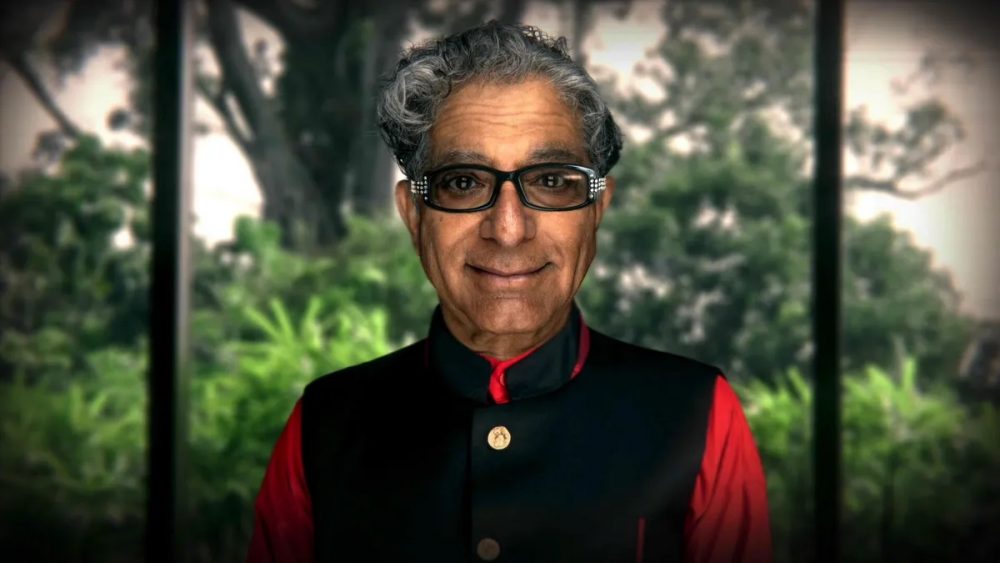The mental health landscape paints a sobering picture. With 1 in 4 people globally projected to experience mental illness at some point, and countless individuals battling anxiety, depression, and loneliness, it's clear we're facing a crisis. But amidst the challenges lies an opportunity – to explore new avenues of support and expand our understanding of what truly nourishes well-being.
One potentially untapped resource? Spirituality. While often relegated to hushed conversations or dismissed as irrelevant in scientific circles, spirituality holds immense power, interwoven with the very fabric of human experience. For billions around the world, it serves as a compass, offering a sense of purpose, belonging, and hope in the face of adversity. And emerging research suggests it could be the missing piece in our fight for mental health.
A Symphony of Belief and Well-being

Freepik | Drazen Zigic |Individuals embracing spirituality often report reduced depression, anxiety, and suicidal tendencies.
Imagine a chorus of voices, each chanting a different melody. Some sing of faith, others of connection to something larger than themselves. While distinct in their tunes, they create a harmonious tapestry, united in their pursuit of well-being. This, in essence, is the relationship between spirituality and mental health. While interpretations and expressions vary, the core thread - a search for meaning, purpose, and connection - resonates deeply within individuals.
Studies by Harold G. Koenig of Duke University paint a compelling picture. His research reveals a positive correlation between religiosity/spirituality and factors like optimism, self-esteem, hope, and resilience. In simpler terms, those who embrace a spiritual dimension often report lower levels of depression, anxiety, and even suicidal tendencies.
The Complexities of Intertwined Worlds
However, the symphony isn't without its discords. Religion and science, two titans of human thought, have often clashed, particularly in high-income countries like the US. Religious traditions may hold views contrary to modern healthcare practices, fueling mistrust and communication barriers.
But dismissing spirituality solely based on these discrepancies would be a missed opportunity. Just as physics doesn't negate the power of art, science and spirituality needn't be rivals. For many, faith adds a layer of meaning to scientific data, providing comfort and understanding in the face of uncertainty.
Building Bridges, Not Walls

Freepik | A strong healthcare system respects personal beliefs, just like faith communities should trust medical know-how.
The key lies in fostering cultural competency. A good healthcare system recognizes and respects personal beliefs, just as faith communities should acknowledge the value of science and healthcare expertise. In areas like end-of-life care, this delicate dance plays out daily, with providers honoring individual wishes while ensuring access to quality care.
Furthermore, faith leaders hold immense power as trusted figures within communities. During the pandemic, their influence on vaccine uptake and behavior management proved invaluable. Recognizing this, and building partnerships based on mutual respect, is crucial for effective public health communication and outreach.
The Ripple Effect of Respect
The benefits extend far beyond individual well-being. A recent Lancet Global Health editorial highlights the shared values of "justice, human dignity, and caring for those in need" between religion and healthcare. Collaborative efforts leveraging faith-based leaders have demonstrably led to positive behavior changes, impacting not just individuals but entire communities.

Freepik | Anxiety and depression cost the world's economy about $1 trillion each year.
Moreover, fostering respect translates to economic gains. Anxiety and depression alone cost the global economy an estimated $1 trillion annually. By acknowledging and addressing spiritual needs, we can foster informed consent, reduce anxiety, build trust, and ultimately, contribute to a society where well-being flourishes.
A Partnership Made in Heaven?
Perhaps, mental health and spirituality aren't just compatible; they might be a match made in heaven. By recognizing the multifaceted nature of human experience, by embracing the diverse melodies that contribute to our well-being, we can unlock a powerful tool in our fight for mental health.
Let's not dismiss the quiet whispers of faith; instead, let's listen closely, for they might hold the key to creating a symphony of hope and healing in the face of our mental health challenges.










